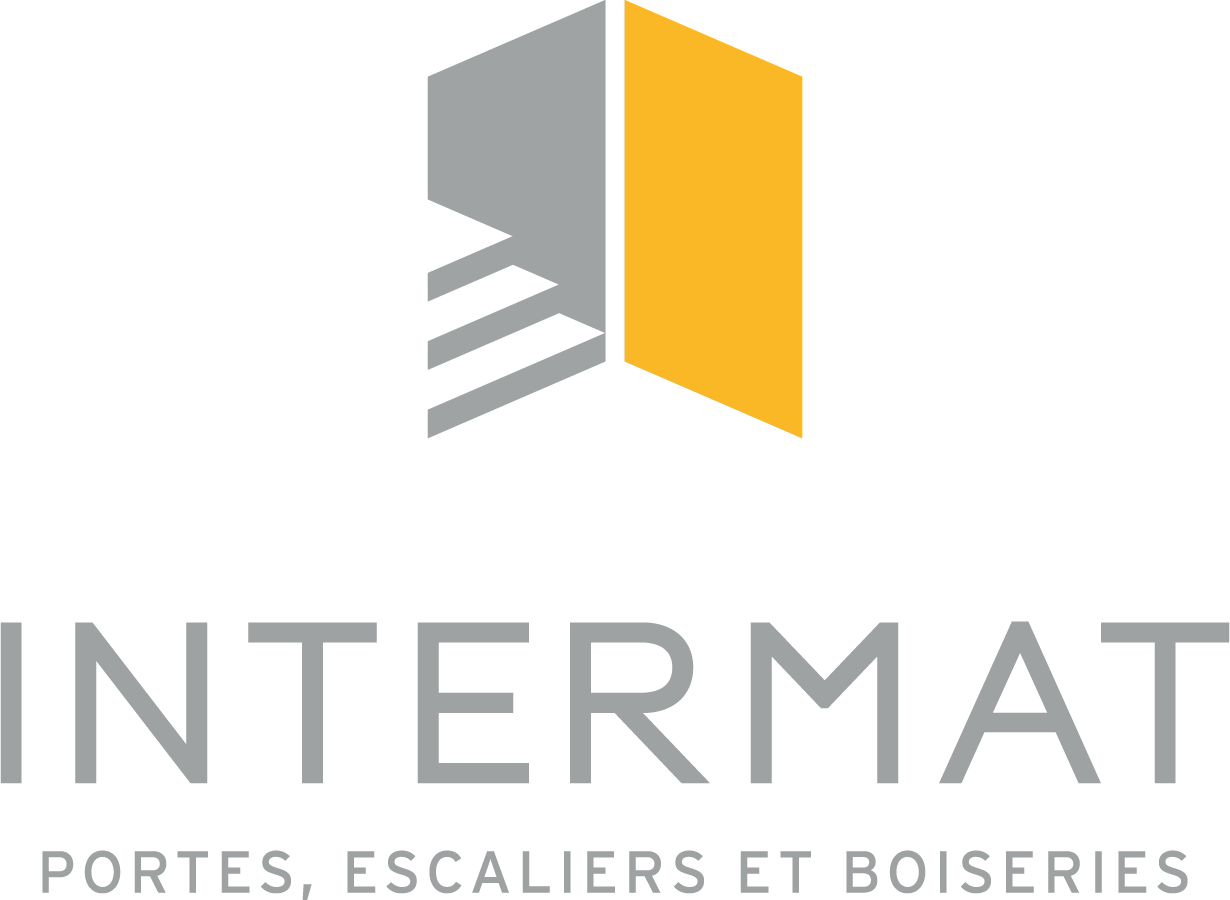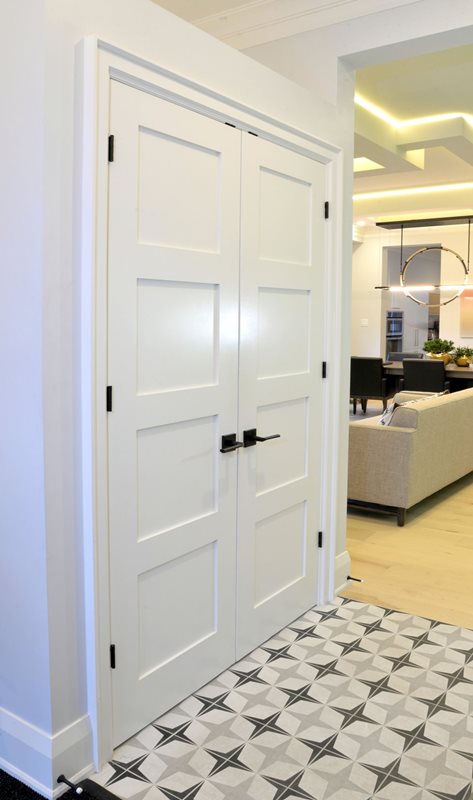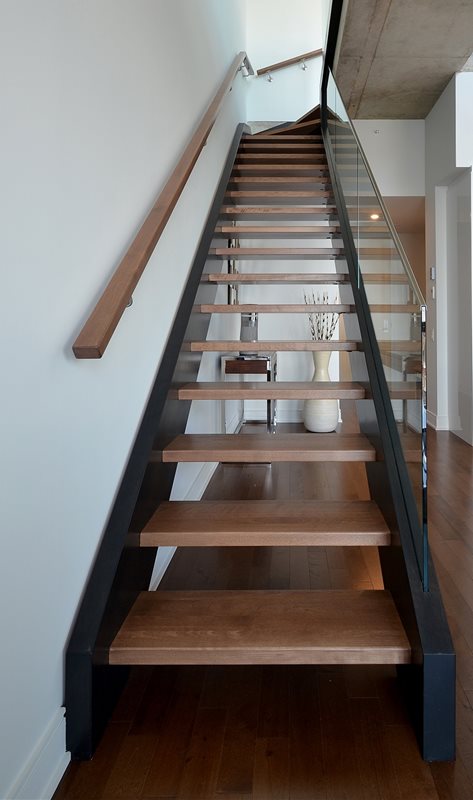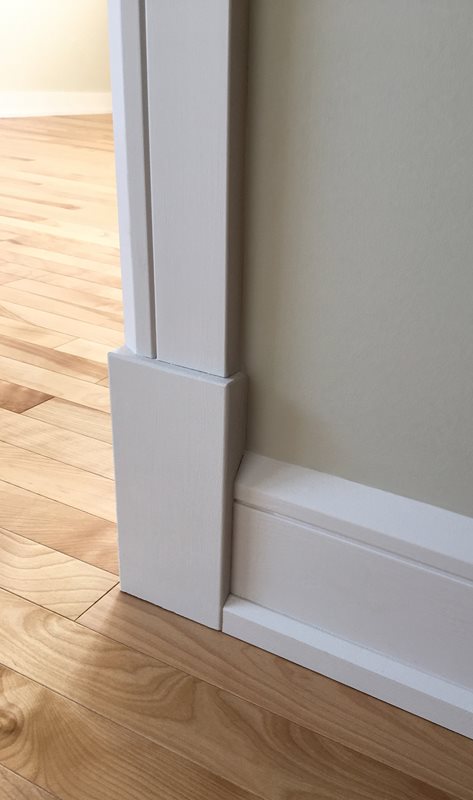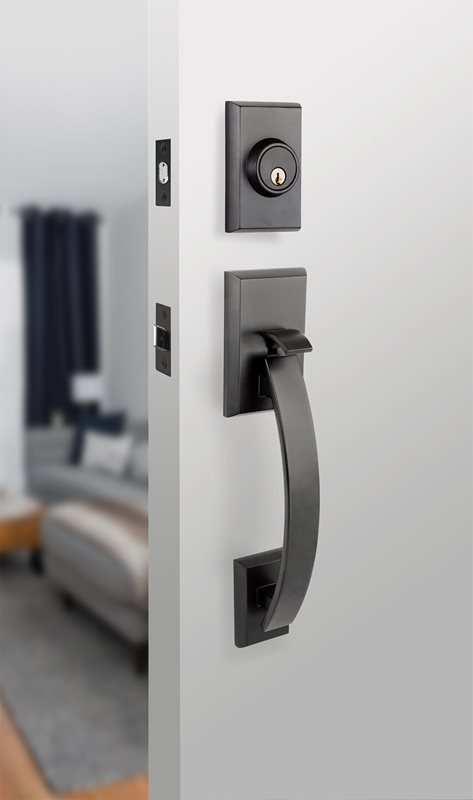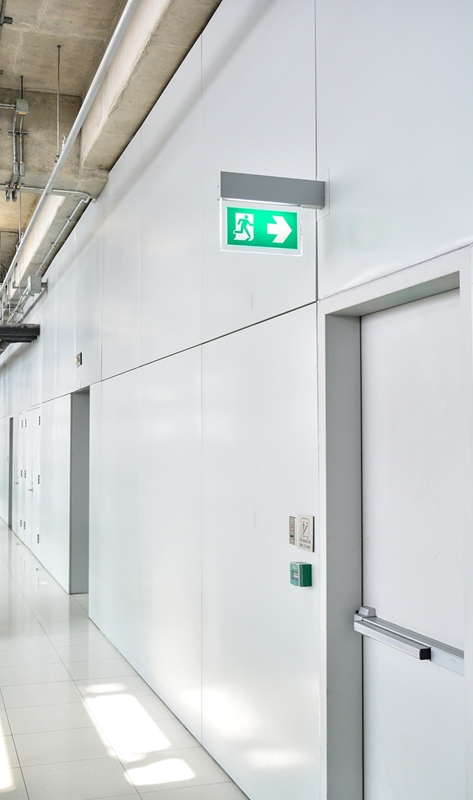Interior doors aren’t just aesthetic elements in a building — they play a critical role in safety, accessibility, and performance. Complying with the National Building Code (NBC) is essential for any construction or renovation project. A non-compliant door can lead to serious delays, added costs, or even legal penalties. For contractors, developers, and project managers, understanding these standards and selecting the right products is key to ensuring a smooth, code-compliant project.
Basic Standards to Know for Interior Doors
When selecting or installing interior doors, it’s crucial to follow the National Building Code (NBC) requirements to ensure both safety and accessibility. According to the 2020 NBC guidelines, the minimum clear opening width of a door depends on its use, starting at 32 inches (813 mm) for an unobstructed path. The minimum clear height is 80 inches (2032 mm). These dimensions are especially important to ensure accessibility for people with reduced mobility, including wheelchair users.
Other criteria may also apply depending on the type of building or room, such as:
-
Use of fire-resistant materials where required by regulations (e.g., between a garage and a house, or in multi-unit residential buildings).
-
Selecting appropriate hardware for doors in public or commercial environments (lever handles, hands-free opening systems, etc.).
Respecting these standards during the planning phase helps avoid costly corrections and ensures a safe and compliant build.
Fire-Rated Doors: When Are They Required?
Fire-rated doors are designed to slow the spread of flames and smoke during a fire, buying valuable time for safe evacuation. Their use is mandatory in several situations, including:
-
Between a garage and a residential home
-
In intergenerational dwellings
-
In multi-unit residential buildings
-
In commercial or institutional buildings
These doors are typically rated based on fire resistance time (20, 45, or 60 minutes, etc.). To ensure their effectiveness, they must be installed with certified fire-rated frames and hardware.
Accessibility and Barrier-Free Construction Compliance
Accessibility is becoming increasingly important, particularly in public, commercial, or multi-unit residential projects. The NBC and certain provincial regulations require specific standards to ensure barrier-free construction.
Interior doors must meet:
-
A minimum width (often 32 inches) to allow wheelchair or mobility aid access
-
Easy-to-use opening systems, such as lever handles instead of round knobs
-
Low opening force, so the door can be used without excessive effort
During the planning phase, it’s essential to consult accessibility standards to avoid costly changes later on.
Install the Right Way: Avoiding Common Mistakes
Even a fully NBC-compliant door can lose its value if poorly installed. Here are some common installation mistakes that can lead to non-compliance:
-
Improper floor clearance: A door installed too low may rub against the floor or hinder airflow
-
Incorrect swing direction: For instance, a door opening onto a stair landing may pose a safety hazard
-
Unsafe or incompatible hardware: Undersized hinges or inappropriate handles can compromise safety and accessibility
That’s why professional installation is a must. Intermat always recommends working with qualified experts to ensure precise, standards-compliant assembly.
How Intermat Helps You Stay Compliant
At Intermat, we understand how important it is to offer products that meet National Building Code requirements. We provide:
-
A complete selection of certified interior doors that meet accessibility standards
-
Personalized technical advice, tailored to the type of building and each project’s needs
-
Full support during tenders and bids, helping contractors and developers choose reliable, compliant solutions
With our expertise and extensive range of interior doors, you can be confident in finding the perfect product for your safety, design, and compliance needs.
Conclusion
Complying with the National Building Code for interior doors isn’t just a legal obligation — it’s about ensuring occupant safety, avoiding costly delays, and building lasting, successful projects.
At Intermat, we put our expertise to work for contractors and project managers, helping them choose certified, code-compliant interior doors tailored to their project’s needs. From product selection to final installation, we’re with you every step of the way.
Do you have a project underway?
Contact our experts today to discover our complete range of doors and hardware that meet NBC standards.

